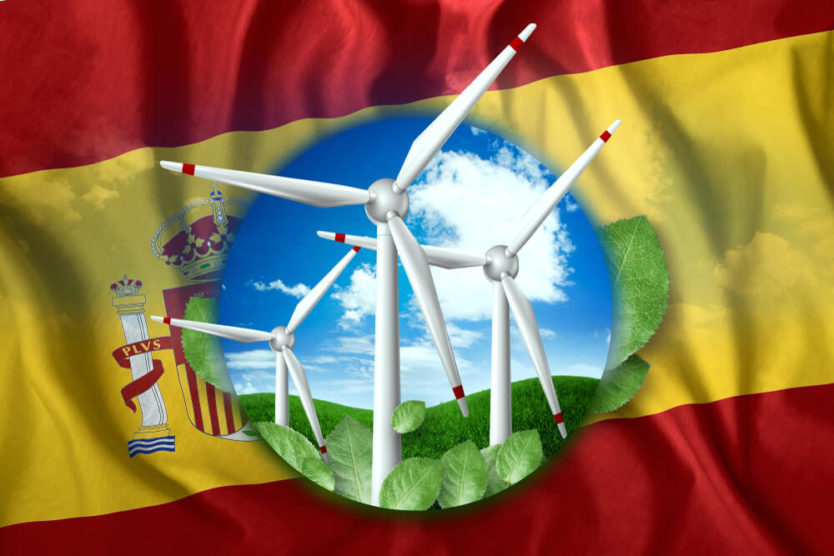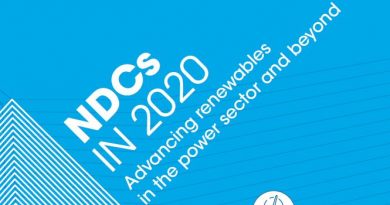Showing up big Business. Spain Plans to go 100% Renewable by 2050

Spain has launched an ambitious plan that sees the country transform its electricity system to be completely powered by renewable sources by mid-century. And it wants to follow up this achievement by completely decarbonising its economy soon after 2050. The new draft climate change and energy transition law also expects the country’s Green House Gas emissions to to be slashed by nearly 90% from 1990 levels in the same time.
As a part of the elaborate plan, Spain is hoping to source 70 percent of electricity from renewables by 2030, and 100 percent by 2050. In 2017 Spain got roughly a third of its power from renewable sources such as sunlight, wind, rain, tides, waves, and geothermal heat and the nation intends to build on that and invest massively in wind and solar power over the next decade while banning new licenses for fossil fuel drilling and fracking wells.
To achieve this, the country’s social democratic government is committing to installing at least 3,000MW of wind and solar power capacity every year in the next 10 years ahead. New licenses for fossil fuel drills, hydrocarbon exploitation, and fracking wells, will be banned, and a fifth of the state budget will be reserved for measures that can mitigate climate change with an increasing fund 2025 onwards. Experts have welcomed the move as evidence Spain is “deadly serious” about fighting climate change, and an example to other nations in setting ambitious targets.
“It is exciting to see Spain setting the pace in its commitment to a 100 percent renewable-powered future,” said James Watson, CEO of SolarPower Europe. “Spain’s energy ambition is a wake-up call to all the other states across the world, as it demonstrates what we know – it is possible to power large economies by renewables in the very near future.”
As the current EU plans stand, Spain plans to install 35% overall renewable energy and 70% renewable electricity by 2030, a 3 percent hike on the EU target of 32 percent. It is also aiming to improve energy efficiency by 35 percent, once again going beyond the EU target of 32.5 percent. Under this plan, “just transition” contracts will be drawn up, similar to the £221 million deal announced in October between the government and the unions, which will fund the shutting down of most Spanish coalmines by the end of the year, and providing for early retirement schemes, re-skilling in clean energy jobs for all the people involved in the sector, and environmental restoration. These deals will be partly financed by auction returns from the sale of emissions rights.
“The draft Spanish climate law is an excellent example of the implementation of the Paris agreement: it sets a long-term goal, provides incentives on scaling up zero emission technologies and cares about a good transition for the workforce,” said Christiana Figueres, former executive secretary of the United Nations Framework Convention on Climate Change. “As an early mover, Spain will gain economically and create new jobs in the renewables sector.”
Our View: We believe that the Spanish example is one we will increasingly see emulated, at a country or even state level across the world. We have already seen how progressive states in counties like the US, notably California, are already committing to electricity generation commitments well beyond their country. But perhaps the biggest lesson from such ‘ambitious’ targets is perhaps for corporates, especially big business. A vast majority of business firms have committed to change at a pace that is at their own convenience, or simply too slow. Many would have set targets that barely match up to Spanish ambitions, as of now. As one of the biggest consumers of electricity, and thus, contributors to global warming, corporates need to go a step beyond their host countries in every case. Rather than lobbying for time to make the change, they ought to lobby for ways to enable a faster transition, nothing else.




